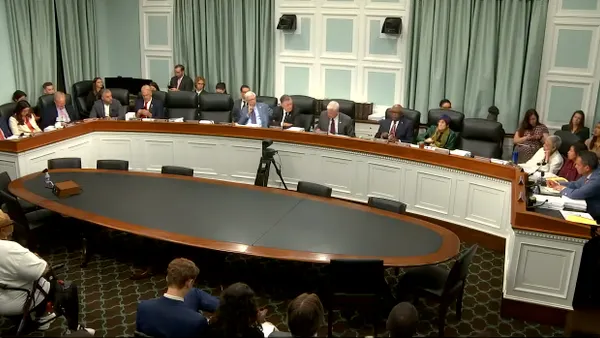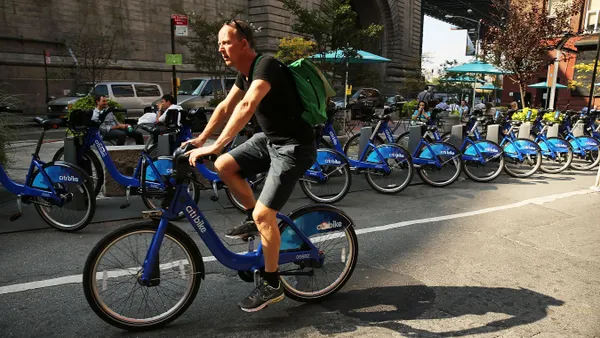Dive Brief:
- In promotion of its Connected Roadway efforts, Cisco Systems announced a smart city collaborative partnership with light detection and ranging (LiDAR) sensor manufacturer Quanergy to enhance smart transportation via IoT solutions.
- Cisco’s Connected Roadway — a network infrastructure designed to equip cities to maximize the link between people, processes, data, and IoT — will utilize Quanergy’s sensors and software to refine intelligent transportation systems which will improve both traffic flow and overall safety, according to a company press release.
- The solution, which boosts safety and enables "faster data analysis and communication amongst vehicles, drivers, lighting and connected signage," according to Cisco's Alison Gleeson, is currently being tested at a highly pedestrian-trafficked intersection in Las Vegas.
Dive Insight:
In a city as globally prolific as Las Vegas, investment in tech such as Cisco Kinetic for Cities, which would further enhance its safety along with its notoriety, makes sense. However, even in such a city that can literally be seen from outer space, there are fiscal realities. While equipping cutting edge tech such as LiDAR may be feasible for a commercial hub such as Las Vegas — which is expected to run a $40 million surplus in fiscal 2018 — this investment presents significant monetary challenges.
To address this municipal dilemma, Cisco previously introduced a program called the “City Infrastructure Financing Acceleration Program,” a $1 billion revenue-share program funded by Cisco Capital and various investors to mitigate initial capital needs while pairing the loan repayments with the variability of future city revenues. With at least 38 states already running on Cisco’s platform, the program will further equip cash-strapped municipalities to transition to smart city initiatives.
Furthermore, as tech such as LiDAR becomes more embedded in the city infrastructure for greater safety as well as greater overall visibility in elements such as traffic flow and parking availability, it will likely be developed to communicate to the autonomous vehicle revolution as well. With companies including General Motors (acquired Strobe in 2017) and Google parent company Alphabet (spun off Waymo in 2016) investing in the sensor tech for self-driving cars and commercial trucks, respectively, smart vehicles can be developed to communicate with smart cities to further enhance the overall vitality and safety of the city.










